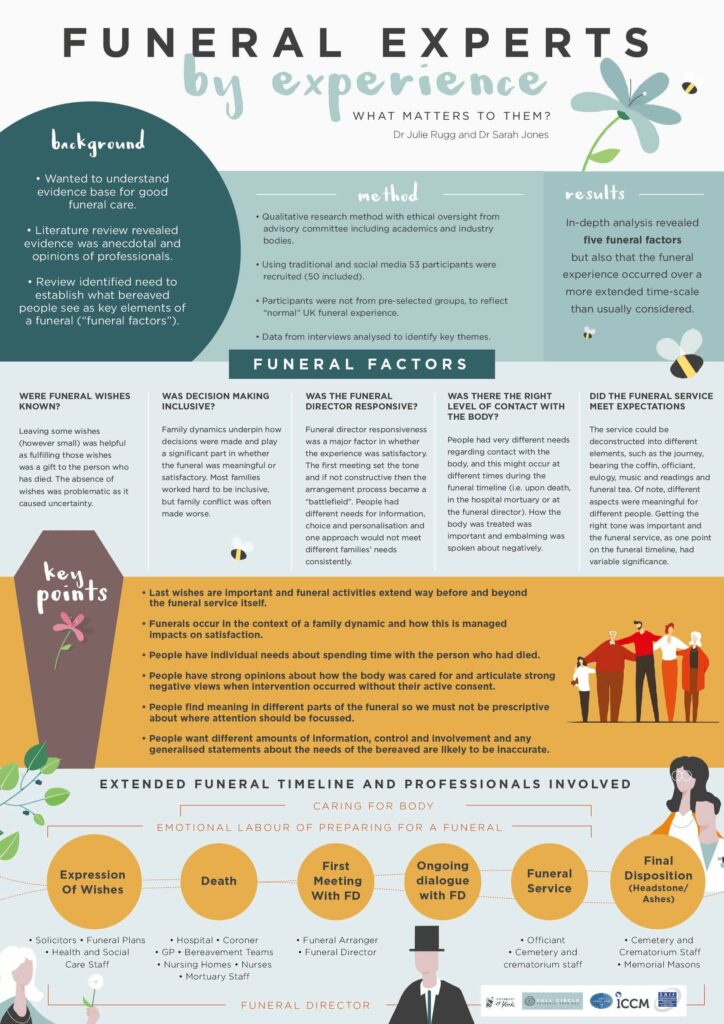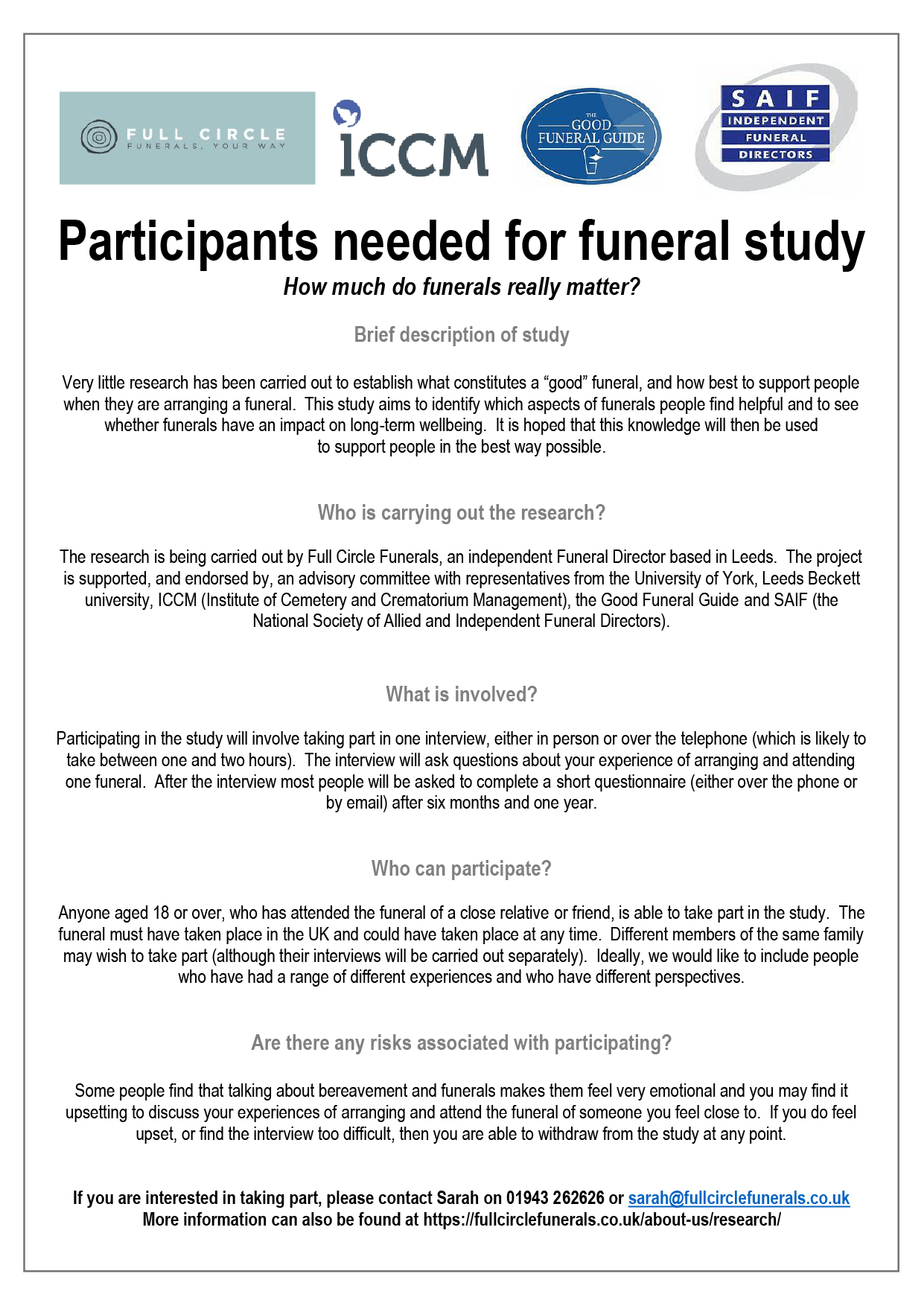
Why do funeral research?
The concept of Evidence Based Practice first originated in the health-care sector over 30 years ago and has been routinely used by health professionals ever since. It aims to improve outcomes by using documented evidence from professional practice and research to solve professional problems and identify the “gold-standard” approach.
Funeral experts regularly claim that a “good funeral” will help people to achieve better long-term grief outcomes. Involvement, participation and feeling satisfied with the funeral planning experience are all regarded as protecting people from “pathological grief outcomes”. However, an in-depth literature review conducted in 2018, left me feeling shocked by the lack of evidence!
EBP has now been embraced by many other disciplines, including education, management, librarianship and literacy development (Clyde, 2006) but it is almost completely lacking in the funeral industry. Should a group of people who claim to be “professionals” not aim to base their practice on something other than anecdotes?
Funeral Experts by Experience – Funeral Factors
Having realised that we no one has asked bereaved people about their experienced of arranging a funeral this meant that we also did not know with confidence what was important to them. Funeral directors and bereavement professionals felt that they knew but we felt it was important to ask the “experts by experience” (bereaved people) about their experienced and recommendations.
In 2019, we completed the first phase of a research project supported by academics at University of York and funeral industry representatives (including Terry Tennens from SAIF, Fran Hall from The Good Funeral Guide and Julie Dunk from the ICCM). This study identified five “funeral factors” which bereaved people consistently reported were important to them when arranging or attending a funeral. The report is available for everyone to read and the findings have been presented at professional conferences (such as the ICCM, NAFD and Humanists conferences) and referenced in academic literature.
The five factors we identified were:
Were the funeral wishes known?
Was decision making inclusive?
Was the funeral director responsive?
Was there the right level of contact with the body?
Did the funeral meet expectations?
For this that are interested, more information about the study (and the report) can be found at https://dev.fullcirclefunerals.co.uk/learning-together/research/
Physical care of the body
Funeral Experts by Experience
During our research, some people shared their opinions about how people are physically looked after once the funeral director has been called, and this has raised more important questions. For the next phase of the research project, we are exploring this further.
In this second phase of the Funeral Experts by Experience project, we are asking volunteers to share their experiences and recommendations about how funeral directors physically care for people who have died. We are looking for members of the public who might be interested in volunteering to share their experience and views with us – this will involve a short interview over the telephone, or by videocall.
https://www.youtube.com/watch?v=YaTkuskAPQU
As with the first phase of our research, all the rich data gathered during the interviews will then be analysed in detail to look for themes and patterns. These themes will then be presented in a report for discussion, shared and individual reflection and to inform good practice and standards.

Funeral Director Practice
The funeral industry is currently unregulated. There is no mandatory code of practice or national minimal standard and membership to trade association is optional. There are various funeral training providers but no mandatory professional qualifications for funeral directors. This means that funeral directors will have their own views and practices and no single organisation currently knows what these practices are.
In addition, we are also asking funeral directors to share their views and practice regarding care for people who have died. We would like to understand practice and experiences before the 2020 coronavirus pandemic. We are asking funeral directors to complete a short online questionnaire so that we can try to better understand practice across the UK.
Funeral director views and practice can then be compared with bereaved people’s expectations and recommendations and this could be the start of a very meaningful conversation about best practice
What next?
The ultimate questions that we would like to answer is whether a funeral has any impact on long term wellbeing. To understand this better we are working with academics from University of Leeds, York and Bradford and considering the best research methods to explore this very important question. Watch this space!
Clyde, L.A. (2006), “The basis for evidence-based practice: evaluating the research evidence”, New Library World, Vol. 107 No. 5/6, pp. 180-192.



